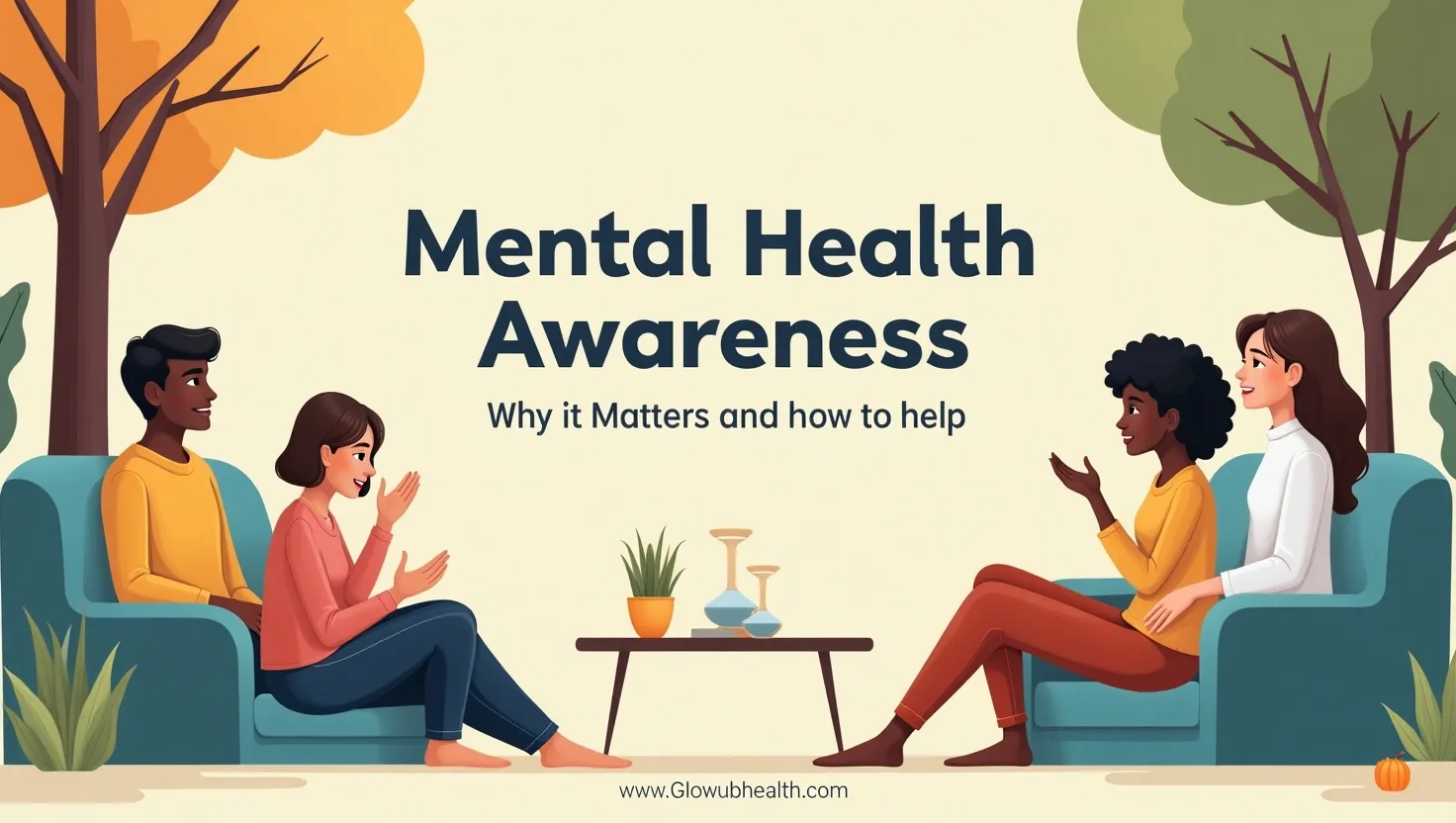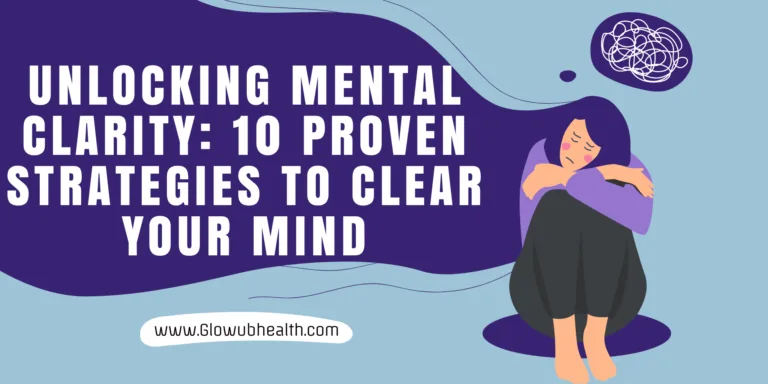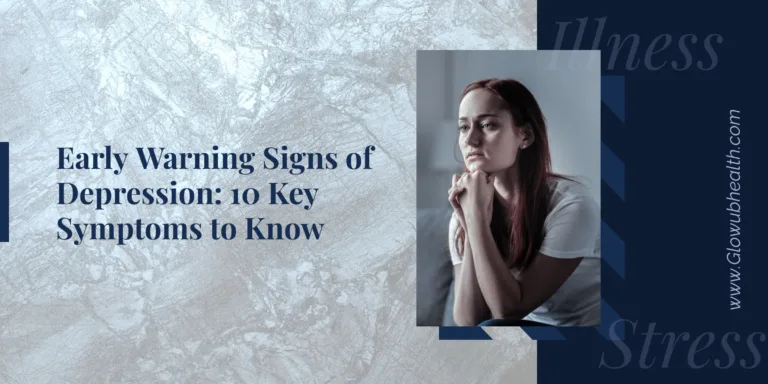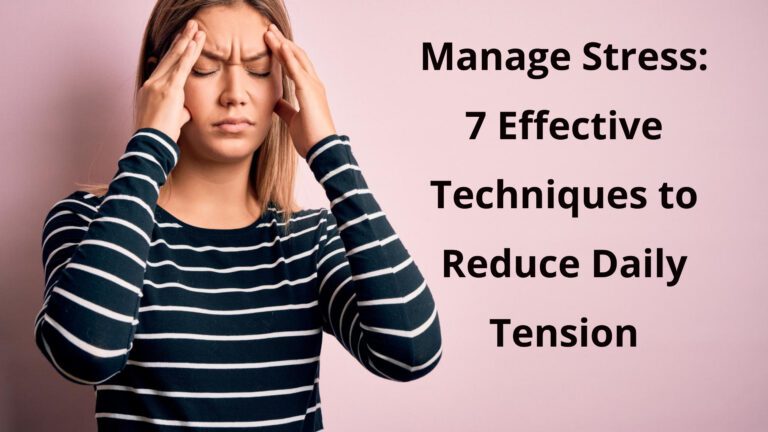Mental Health Awareness : Why It Matters and How You Can Make a Difference
Mental health isn’t just about feeling happy—it’s about overall well-being, resilience, and the ability to navigate life’s challenges. Yet, many people overlook its importance until struggles become overwhelming. That’s why mental health awareness matters—it helps people recognize issues early, seek support, and build healthier communities.
In this guide, we’ll explore why mental health deserves attention, how to check in with yourself, and what you can do to promote awareness in your own circles. Whether you’re focusing on self-care or supporting someone else, you’ll find practical insights here that can make a difference in fostering a more mindful and supportive environment.
This content is for informational purposes only and is not a substitute for professional mental health care or therapy. If you or someone you know is struggling with mental health issues, please seek the help of a qualified healthcare provider or mental health professional.
Why Mental Health Awareness Matters
1) Spotting Problems Early
Being aware of mental health allows people to notice red flags—like persistent anxiety, sadness, or fatigue—before they turn into bigger problems. When someone understands the signs, they’re more likely to reach out for help or encourage others to do the same.
For instance, a study by the World Health Organization (WHO) found that early intervention significantly improves recovery chances. If someone recognizes the symptoms of depression and seeks therapy early, they’re more likely to avoid severe episodes.
2) Fighting Stigma
One of the biggest hurdles to mental wellness is stigma—the fear of judgment that stops people from asking for help. Mental health awareness campaigns chip away at this stigma by promoting honest conversations and understanding.
Example: The UK’s “Time to Change” campaign led to more people feeling comfortable discussing their mental health. After the campaign, 5% more individuals said they’d talk about their struggles openly.
3) Building Emotional Resilience
When people understand mental health, they’re better equipped to handle stress and setbacks. Knowing how to practice self-care, set boundaries, and seek support can make life’s challenges feel more manageable.
Tip: Try simple mindfulness practices like deep breathing, meditation, or daily journaling to stay grounded.
How to Do a Mental Health Check-In
A mental health check-in doesn’t have to be complicated. Here’s how you can regularly assess your emotional well-being:
1) Notice How You’re Feeling
Ask yourself:
- Do I feel stressed, anxious, or low?
- Am I feeling overwhelmed or emotionally drained?
- Do I feel motivated and engaged?
Tip: If you find it hard to pinpoint your emotions, try using a mood-tracking app or simply jot down how you feel each day.
2) Look at Physical Signs
Your body often reflects your mental state. If you’re constantly tired, experiencing headaches, or having trouble sleeping, your mental health might need attention.
Quick Fix: Prioritize sleep, balanced nutrition, and regular movement to support both body and mind.
3) Think About Your Relationships
Strong connections can protect your mental well-being. Ask yourself:
- Am I connecting with friends and loved ones?
- Have I been isolating myself lately?
Example: Even a quick chat with a friend can brighten your mood and reduce stress.
4) Identify Stressors and Coping Strategies
What’s been weighing you down lately? Write down your stressors and brainstorm healthy ways to cope—like going for a walk, practicing gratitude, or talking to someone you trust.
How Society Can Promote Mental Health Awareness
1) Schools and Mental Health
Schools play a crucial role in promoting mental well-being. Teaching kids about emotional health can equip them with lifelong coping skills.
Example: Australia’s “Be You” initiative gives schools mental health resources, helping students manage stress and build resilience.
2) Workplaces That Care
Workplaces can foster mental wellness by encouraging breaks, offering mental health days, and providing access to counseling services.
Tip: Employers can promote mental health by conducting regular check-ins and sharing self-care resources.
3) Community Campaigns
Local initiatives, like awareness walks and support groups, can encourage open conversations about mental health.
Example: Canada’s “Bell Let’s Talk” campaign raised millions for mental health programs while encouraging people to share their stories.
How You Can Make a Difference
1) Educate Yourself and Others
The more you know about mental health, the better equipped you are to help others. Read books, watch documentaries, and follow reputable websites like NAMI or the WHO.
2) Start Conversations
Talking about mental health doesn’t have to be awkward. Sometimes, a simple question like “How have you been feeling lately?” can open the door to a meaningful chat.
3) Support Mental Health Organizations
You can make a difference by volunteering, donating, or participating in awareness events. Every small action counts.
Overcoming Barriers to Mental Health Support
If you or someone you know is hesitant to seek help, here’s how to address common barriers:
- Fear of Judgment: Look for confidential support, like anonymous helplines.
- Cost Concerns: Many community centers and online platforms offer free or low-cost counseling.
- Lack of Awareness: Promote mental health education through workshops, blogs, and social media.
Looking Ahead: The Future of Mental Health Awareness
With technology and advocacy on the rise, mental health support is becoming more accessible. Apps like Headspace, Calm, and BetterHelp make it easier to access resources anytime, anywhere.
Conclusion: Small Steps, Big Impact
Mental health awareness starts with understanding—understanding yourself, your loved ones, and the challenges people face. By staying informed, speaking up, and offering support, you can help create a world where mental well-being is a priority.
What’s Next? Check in with yourself today. Reach out to someone you care about. And don’t hesitate to share this article—you never know who might need a gentle reminder that their mental health matters. Together, we can foster an environment where open conversations about mental health are encouraged, and support is always available.
1. What is mental health awareness?
Mental health awareness involves understanding, recognizing, and supporting mental well-being. It encourages open conversations, reduces stigma, and helps people identify early signs of mental health issues.
2. Why is mental health awareness important?
Raising awareness promotes early intervention, reduces stigma, and encourages people to seek help without fear of judgment. It also fosters healthier communities by prioritizing emotional well-being alongside physical health.
3. How can I promote mental health awareness in my community?
You can promote awareness by:
Talking openly about mental health.
Sharing educational resources.
Supporting local mental health campaigns.
Encouraging friends and family to do regular mental health check-ins.
4. What are some signs that someone might be struggling with their mental health?
Common signs include:
Persistent sadness or anxiety.
Withdrawal from social activities.
Changes in appetite or sleep patterns.
Difficulty concentrating.
Increased irritability or mood swings.
5. How can I check in on my mental health?
To perform a mental health check-in:
Reflect on your emotions and energy levels.
Notice any physical signs of stress, like fatigue or headaches.
Evaluate your relationships and support systems.
Identify any stressors and find healthy coping strategies.
6. What should I do if I’m struggling with my mental health?
If you’re struggling:
Talk to someone you trust, like a friend or family member.
Seek professional help from a therapist or counselor.
Practice self-care through mindfulness, exercise, and healthy habits.
7. How can I support someone who is experiencing mental health challenges?
Listen without judgment.
Encourage them to seek professional help.
Offer practical support, like helping with daily tasks.
Check in regularly to show you care.
8. Are there any free resources for mental health support?
Yes, many organizations offer free or low-cost support:
Crisis Text Line: Text HOME to 741741 (US).
NAMI Helpline: 1-800-950-NAMI (6264).
WHO: Resources available globally.
9. Can mental health conditions be prevented?
While not all mental health conditions can be prevented, you can lower the risk by:
Managing stress effectively.
Maintaining a balanced lifestyle.
Seeking help early when challenges arise.



